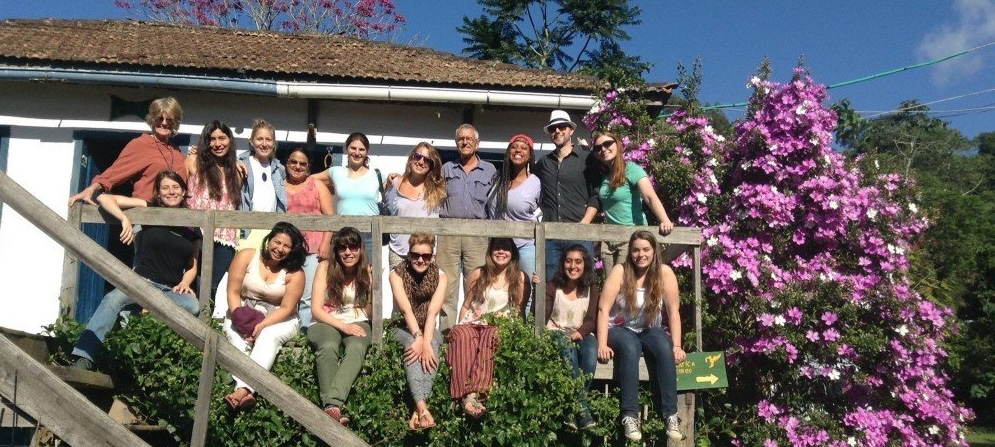
At this point in the year, continued FAFSA delays will have serious implications for many college-bound high school seniors who need to make their college acceptance decisions based on available financial aid packages. For many, it might mean delaying their college start altogether, leaving a large body of students feeling suddenly unmoored as they try to wrap their minds around the prospect of an unexpected gap year.
Let’s start by acknowledging how difficult this situation is for so many students. It is utterly disorienting to have to pivot away from long-laid life plans because of circumstances beyond your control. However, following some well-warranted grieving, we encourage students to embrace these circumstances as an exciting opportunity: making an active decision to craft a meaningful gap year can help students regain command over their futures, allowing them to access a valuable set of experiences that could help shape the rest of their lives.
GYA defines a gap year as “an intentional period of time devoted to personal growth and exploration through experiential learning opportunities.” This means that a gap year is not simply a year off–on the contrary, it is a time for meaningful self-reflection, self-discovery, and skills building, which requires intentional planning and goal-setting. A gap year will have the most potential for growth and self-exploration when a student plans ahead for how to maximize their time and structure it as a set of building blocks towards their next steps in life.
Following is a set of summarized guidelines for students considering shifting their next steps into a gap year, taken from GYA’s Gap Year Planning Guide (available to download for FREE):
-
- Identify specific goals for your gap year. Think about areas you would like to grow in, and identify experiences that will ask you to step out of your comfort zone. Are you feeling burned out on anything in particular? Use the opportunity to do something different, and return to a school setting later feeling refreshed and energized for academics again.
- Understand the range of different experiences available. From destination work options to service/volunteering opportunities to structured programs with other students, there is a wide variety of different experiences and activities that vary in duration, cost, levels of guidance/supervision, etc. Do some research and begin browsing options on GYA’s gap year program page to help brainstorm ideas.
- Think about experiences that will align with your personal interests and goals. Just because you’re not starting college right away doesn’t mean you can’t get a head start on exploring the topics/issues/potential career paths that interest you! Would you like to learn more about conservation? Art? Animal welfare? Emergency medicine? Social justice? Personal health & wellness? There are numerous internships, courses, volunteer opportunities, and individual pursuits that can help you expand your skills, knowledge, and general experience with any number of passions and curiosities.
- Identify where you can go. Do you have the resources to travel out of your home town, or even out of the country? If you need to stay home to save money, what are some aspects of your home community you would like to learn more about or be more involved in?
- Create a Plan: Most gap year students will engage in multiple activities throughout their gap year. For example, a student might work a summer job, then take on a full time internship in the fall and then volunteer abroad in the winter or spring. Divide your year into sections or seasons and sketch out a plan that develops different areas of yourself through different activities.
- Seek Guidance and Support: Don’t hesitate to reach out to mentors, educators, family, or professionals in your field of interest for guidance and support. They can provide valuable insights, advice, and networking opportunities to help you make the most of your gap year.
- Reflect and Evaluate: Regularly reflect on your experiences and progress during your gap year. Journaling is a great tool to employ on your gap year to process your experiences and take stock. Evaluate what’s working well and what you could improve upon to ensure your gap year remains purposeful and fulfilling.

Research has shown that gap year students:
- Demonstrate higher academic performance and graduate sooner than their peers in higher education
- Feel more confident, mature, and culturally informed following their gap year experiences
- Believe that their gap year positioned them well for their next steps in life
- Had gap year experiences that influenced their choice of college major and/or career
With the rising costs associated with four-year degrees in the U.S., students should position themselves to maximize the potential of their college experience–and the data tells us that gap year alumni tend to make excellent college students and campus community members! With the higher degree of confidence, maturity, and overall clarity of purpose that an intentional gap year can offer, gap year alumni are set up well to take advantage of campus resources and to achieve a feeling of college success.
We know that this is an incredibly difficult time for many students to navigate. Graduating seniors whose long-awaited college plans have been upended for the fall are feeling alarmed and very, very frustrated. We encourage students to take advantage of GYA’s planning resources, to reach out to programs for information on experiences, enrollment, and financial aid, and to start pivoting towards excitement for the opportunities an intentional gap year can provide.
For more information on scholarships, financial aid, and low- or no-cost program options, we encourage students and families to check out GYA’s Financial Assistance webpage, which is regularly updated with new opportunities for financially accessible gap year experiences.
Interested in what others are saying on this topic? Read more from the GYA community:
FAFSA Delays, College Admissions & Gap Years on the Rise, by Jane Sarouhan, Accredited Gap Year Consultant at J2Guides
Categories
- Advising (7)
- Alumni (2)
- Career (5)
- College & University (15)
- Communication (17)
- DEIA (4)
- Fair Trade Learning (3)
- Finances (12)
- Gap Year Benefits (68)
- Growth & Development (8)
- Leadership (6)
- Learning & Reflection (55)
- Mental Health (4)
- Planning (60)
- Professional Development (5)
- Research (4)
- Risk Management (3)
- Safety (5)
- Service-Learning (10)
- Standards & Accreditation (1)
- Sustainability (6)
- Voices Project (20)
